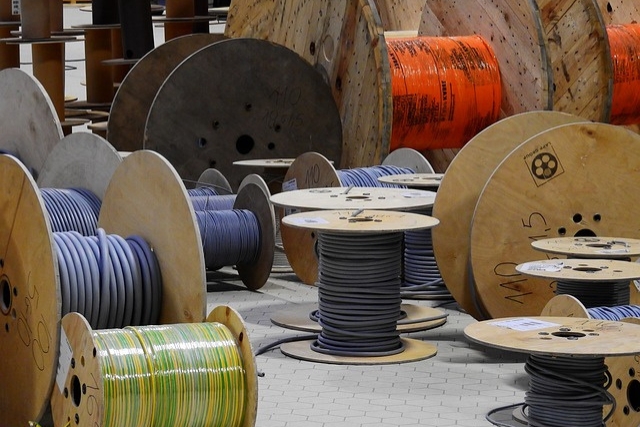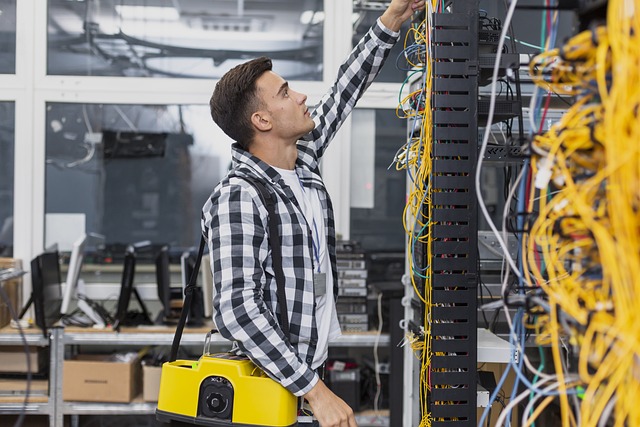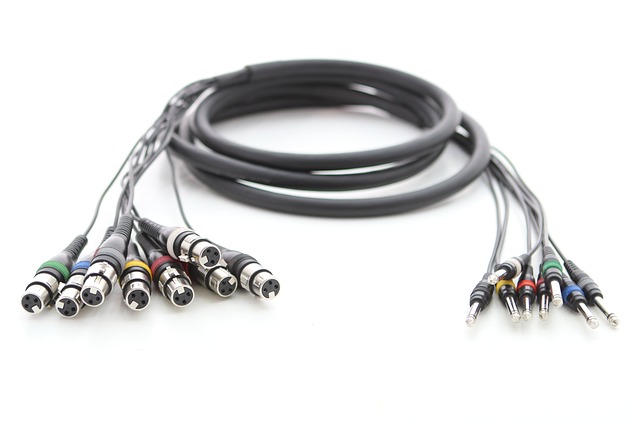Custom industrial cabling is one of Electrolomas' lines of activity. This possibility focuses on producing…

Industrial cabling: what is its importance?
Nowadays, the role played by industrial cabling in installations can even determine the viability of the business. Not in vain, it is the guarantor of the proper functioning of the machinery, control systems and technology that has been implemented. Therefore, not taking it into consideration is not only a danger for the installation, but for the entire production network.
Why should you choose the right industrial cabling?
It is not just a question of reliability, the importance of industrial cables affects several aspects of the company. Here are some of them:
- Efficiency. It is one of the major objectives in any type of industry due to the savings it represents and corporate objectives related to the environment. The quality of the cable, its resistance to heat or its load capacity prevent energy loss and overload.
- Productivity. Good design in the cabling system favors the full performance of the machinery and equipment. In this way, maximum productivity is obtained from them.
- Safety. It is estimated that up to 40% of industrial downtime is due to wiring problems. In addition, this is one of the environments where, precisely, there should be more security. Wiring that is appropriate for the installation inhibits short circuits and minimises the risk of fire. In this way, it protects people and investment.
- Availability. The uninterrupted continuity required by current technology, IoT applied to industry, cloud systems or robotic twins, among others, require a reliable electrical system.
How and where to find the ideal types of wiring?
Choosing the right types of industrial wiring depends on the installation and each application. Thus, there are various regulations and quality standards for its installation and also for correct maintenance in industrial environments. One of them is NFPA 70.
Industrial wiring types can be classified according to a multitude of criteria, including colours.
Low voltage industrial cables
Up to 1000 volts, these are used in industrial installations and, for their manufacture, they follow the UNE, IEC, etc. regulations. Some of them are the following:
- Cables for electrical panels. They are flexible and are used in installations without great needs.
- Power cables. They are common in industrial installations for individual derivations and in all those systems that require demanding conditions or with a frequency converter.
- Armoured cables. They are used in installations that are subject to great mechanical wear or in which there are rodents. They are covered with aluminium or steel.
Medium voltage cables
Within this typology, the following are found:
- RHZ1. Its insulation is made of cross-linked polyethylene. It is fireproof and halogen-free.
- HEPRZ1. Its insulation is made of high modulus ethylene-propylene or HEPR. It is characterised by its great resistance to mechanical wear.
- RHVhMVh. They are used in special installations, those that may be in contact with hydrocarbons or oils. They are made of copper or aluminum.
Not skimping on industrial wiring means significant savings due to the efficiency and performance of the machines, and provides greater safety. It protects the installation and the staff. At Electrolomas we take this very seriously. If you require personalized advice, further information or receive a customized quote, just contact us or follow us on social networks.



